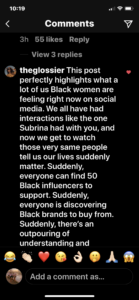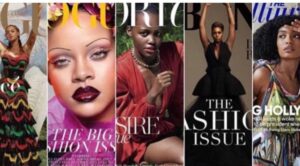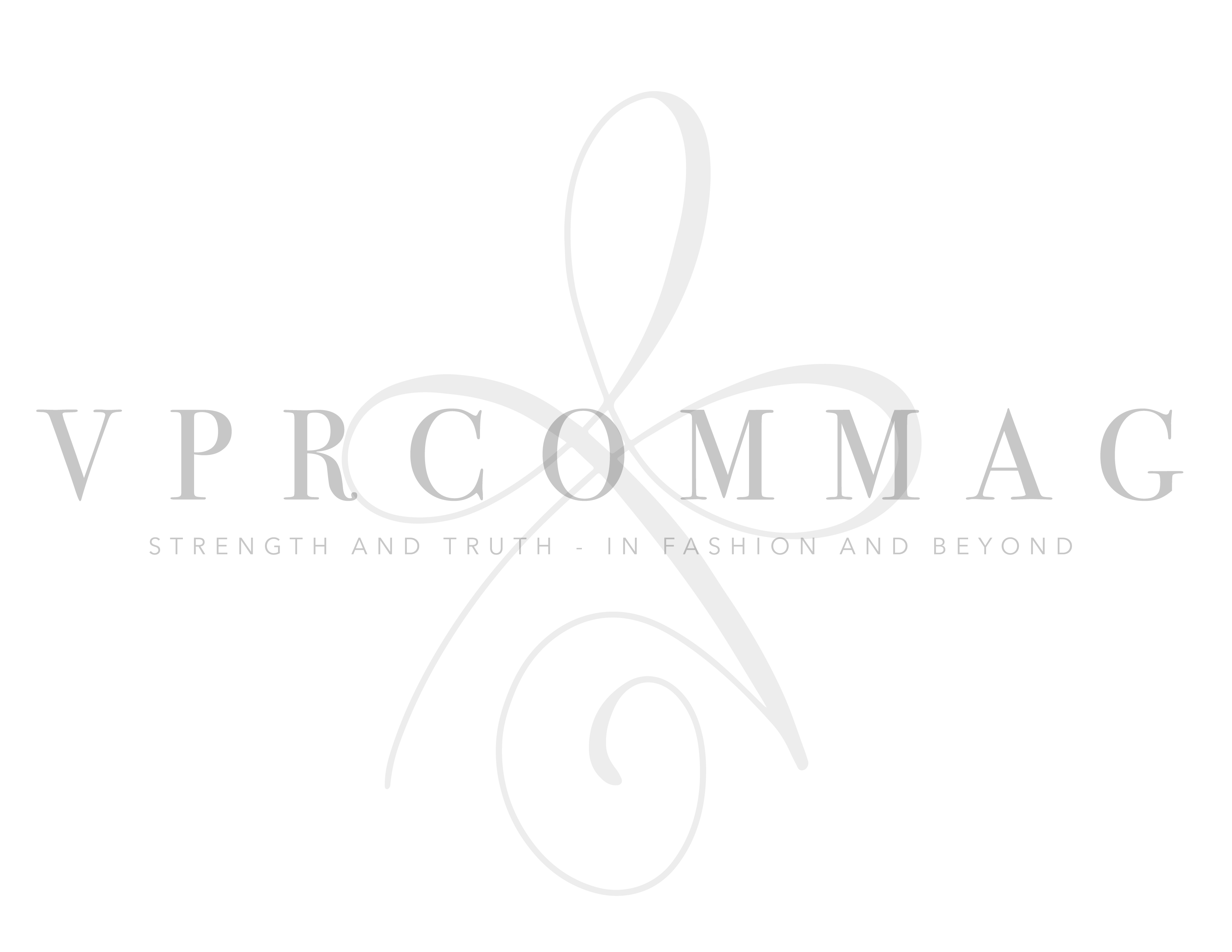The past few days have given many individuals time to think about their business practices, what they could and should have done better.
Some can say “it’s a better time than never” or “we didn’t realize we were excluding African Americans” But is that enough? Why has it taken the current national climate for this change? Why weren’t brands making this a part of their regular practice before? There have been multiple accounts in the past years in which black men have been killed by police brutality, where was the change then?
It’s taken violent riots for this change to be within the industry and frankly, I’m rather disgusted at the patronizing of the black community right now because that’s what it is patronage. The black community doesn’t want pity, they want to change, they want real change, the change that should have come a long time ago.
Statements can be seen all over social media from magazines to brands such as this statement:
http://blumberger.net/635-2/ “We have always recognized the importance of diverse talent and voices at Coveteur. But after days of introspection and a more thorough internal discussion on privilege, we know that we can and must do better—we know we have fallen short.”
https://www.instagram.com/p/CAvxLNTAHfW/
This statement was from Marie Claire on June 2, 2020: electively “So it is our responsibility as white allies to be as informed and educated as we can. Before we act, we must first investigate—especially since this moment is not about white people and our needs. We must make sure to do the work on the issue before coming with questions about race. And we must first check if the person we’re asking has the mental and emotional bandwidth to discuss and share.”
https://www.instagram.com/p/CA8ml5xBxEj/
Or, how about this one from Summer Fridays: ” We will continue to showcase Black creators in our imagery, our marketing campaigns, and our influencer collaborations”
https://www.instagram.com/p/CBE0aKADgVW/
Platforms such as Like to Know It have completely pivoted their feed with African American influencers all week and has made this statement: “We are committed to being a part of the change that needs to happen and using the means we have to give greater visibility to the Black creators in our community. To start, we are using our social platform to elevate Black voices. Over this next week, our site is staying muted so go to our main instagram handle @liketoknow.it, which will be dedicated to Black influencers and creators – to share personal messages in their own words with our entire community.
We know this is a small step. This is the first of many that are needed within our own company and our platform. We don’t have all the answers today, but we are committed to showing you progress over the long term. Our feed will reflect the diversity of the creators who’ve helped build LIKEtoKNOW.it into what it is today.”
https://www.instagram.com/p/CA5tGPljNjO/
Our point is why did it take so long? Why make it a commitment to inclusive hiring, featuring more diverse talent, provide a platform for black writers and voices that need to be heard, support, and featuring more black-owned companies, and feature more black creators NOW?
In a recent Instagram post by freelance writer Alyssa Coscarelli @alyssainthecity who openly apologized for a comment, she made against one of her co-workers, and in which she didn’t realize how it affected the co-worker, there was a comment made by Blogger Tasha James @theglossier who summed it up perfectly:
“This post perfectly highlights what a lot of us Black Women are feeling right now on social media. We all have had interactions like the one Subrina had with you, and now we get to watch those very same people tell us our lives suddenly matter. Suddenly, everyone can find 50 Black influencers to support. Suddenly everyone is discovering Black brands to buy from Suddenly, there’s an outpouring of understanding and respect for our shared experiences. I think what would be really helpful is to just make an apology, and not center yourself and not try to explain away your actions.”
A racial and gender bias in magazine advertising study was done dating back to 1997 by S. Pious and Dominique Neptune Wesleyan University for Psychology of Women Quarterly was done and a content analysis was performed. Per the report that was done on “10 years of fashion advertisements drawn from magazines geared toward White women, Black women, or White men (N == 1,800 advertisements from 1985-1994). The results indicated that (a) except for Black females in White women’s magazines, African Americans were underrepresented in White magazines; (b) female body exposure was greater than male body exposure, and White female body exposure rose significantly during the 10 years; (c) White women were shown in low-status positions nearly twice as often as were other models; and (d) Black women wore the majority of animal prints, most of which were patterned after a predatory animal. These findings suggest that racial and gender biases in magazine advertising persisted, and in some cases increased, between the mid-1980s and mid-1990s.”
Moving forward to 2017 with an article by Tori Owens of the Peninsula Press (a project of Stanford_Journalism), she noted that “Over the past three decades, American Vogue has featured five times as many white models on its covers than minority models, and Harper’s Bazaar U.S. has shown nearly seven times as many white models. At the same time, the number of minorities in the United States has been steadily increasing, growing nearly 30 percent from 2000 to 2010 alone. The white population grew 1.2 percent over that same period.” The research in her article found that “only 16 black or African American women made it on the cover of Vogue, this is a figure of 185 people out of the 442 times. Harper’s Bazaar featured 163 unique individuals over the same three-decade time period, nine of whom were black or African American.”
The industry has had years and years of opportunities to correct itself and we must ask the question: are the current changes that being made by multiple outlets being done amidst a trending movement to gain popularity, inclusivity, and stay politically correct? How do we know it is even being executed at all?
It is a great day when change happens for the betterment of the black community and for society but do it because it’s the right thing to do, not just out of guilt. Make it a regular practice for good. But could this all be a little too late? Only time will tell.




